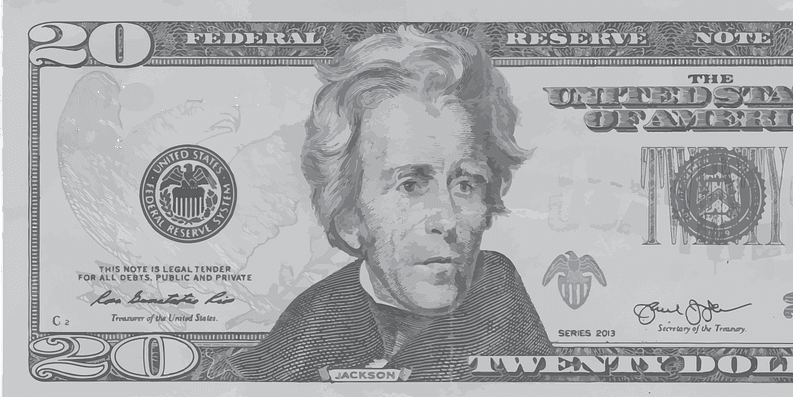Andrew Jackson has been pictured on the $20 bill since 1928—a bit of historical irony since he opposed paper money. Known as “the people’s president,” Jackson was elected in 1828, when, for the first time most white-male citizens were able to vote.
I wanted to find out more about him, so I surveyed books on Jackson’s career and accomplishments.





